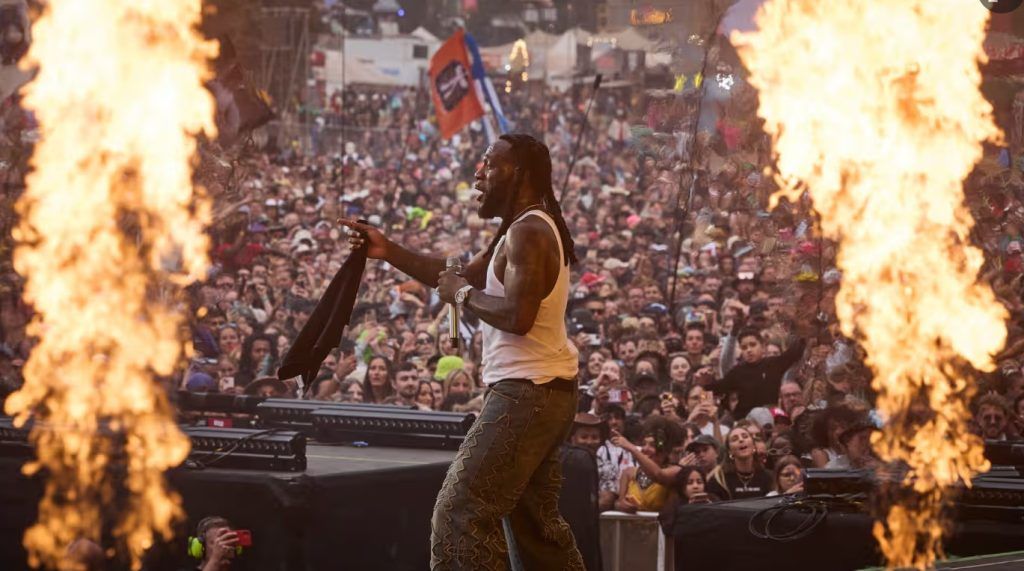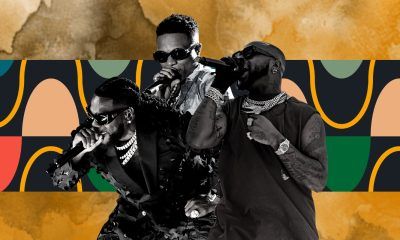Showbiz & Entertainment
Afrobeats Decline: Is Africa’s Biggest Sound Losing Its Global Appeal?
Afrobeats: Once a Global Fever
In 2022 and 2023, Afrobeats was on fire. Songs like Rema’s “Calm Down” (with Selena Gomez) smashed records. It became one of the most streamed Afrobeats songs ever, amassing over 1 billion streams on Spotify and topping charts in countries like India, the UK, and the US. Burna Boy’s “Last Last” was everyone’s heartbreak anthem, while Wizkid’s “Essence” (featuring Tems and Justin Bieber) turned the world into slow-wining zombies. But in 2024? Crickets. The Afrobeats train didn’t just slow down; it might have stopped at a bus stop with no Wi-Fi.Chart Performance: The Cracks Are Showing
In 2024, Afrobeats failed to produce global chart-toppers. None of the top Afrobeats releases made it into Billboard Hot 100 in the first three quarters of the year. Meanwhile, global charts saw Latin pop, K-pop, and even Reggaeton making major moves. It’s like Afrobeats forgot to set an alarm and overslept the year. Let’s break it down: In 2022, five Afrobeats songs charted on Billboard. In 2023, three did. Then in 2024? Just one made it briefly — and it didn’t stick around for long. Even Spotify’s Global Top 50 hasn’t seen much of Africa’s favourite sound lately. That’s a red flag waving like it’s at a football match.Streaming Numbers: The Data Doesn’t Lie
Universal Music Group (UMG), home to several Afrobeats stars, reported a 3.9% decline in streaming revenue in Q2 of 2024. Compare that to a 10.3% growth in Q1 — that’s not just a hiccup; it’s a cough. According to Nairametrics, the fall is linked to “shortfalls on certain platforms and delay in deal renewals.” But let’s be honest, if fans were banging those hits like before, numbers would’ve been booming regardless of contracts. Spotify’s 2024 mid-year report also revealed a slowdown in Afrobeats consumption growth outside Africa, with only a 2.5% rise, compared to 18% in 2022.A Reggae, Jazz, and Dancehall Déjà Vu?

Bob Marley and co held the world spell-bound with reggae music in the 70s through the 80s. Photo Credit: Mike Prior/Redferns.
Too Many Artists, Too Few Stars
Let’s face it. Every week, someone’s cousin is dropping an Afrobeats single on Audiomack. The industry is oversaturated. In Nigeria alone, over 500 new artists released Afrobeats tracks in 2024. That’s great for creativity but terrible for longevity. Despite this flood, the number of breakout stars from Nigeria has remained steady at around two per year. That’s like throwing 1,000 noodles at the wall and only two stick. Not great odds.Performance Fees: The “Buga” Is Too Costly

Afrobeat star, Burna Boy, charges as much as $1million for concert performances
Are Listeners Moving On?
Afrobeats still has loyal fans. But global audiences are fickle. They move fast. Today it’s Tems, tomorrow it’s Peso Pluma or NewJeans. With Latin pop, K-pop, and drill rap becoming more experimental and cross-genre, Afrobeats risks sounding repetitive. Fans want freshness. If Afrobeats doesn’t evolve, it might soon be remembered like Reggaeton’s 2007 moment — catchy but stuck.Why Afrobeats Is Struggling
Let’s list it out:- Lack of new global hits.
- Declining streaming numbers.
- Oversaturation — too many artists, not enough uniqueness.
- High performance costs.
- Sound fatigue — listeners want more diversity.
- Less international collaborations.
- Fewer standout albums.
- Streaming algorithm changes.
What Needs to Change?
- To bounce back, Afrobeats needs to:
- Innovate its sound (enough of the same old log drums and love lyrics).
- Embrace more global collaborations.
- Develop younger talents properly.
- Lower show costs to stay competitive.
- Learn from Reggae’s and Jazz’s slow fade.
Future of Afrobeats
If Afrobeats can reinvent itself — the way Reggaeton did or the way Beyoncé did every 5 years — it could dominate again. But for now? Let’s just say the party’s not over… but the DJ has definitely changed the track.-
READ ALSO: Top 10 Celebrities Who Own Private Islands
Discover more from Jojo Naija
Subscribe to get the latest posts sent to your email.
Continue Reading



